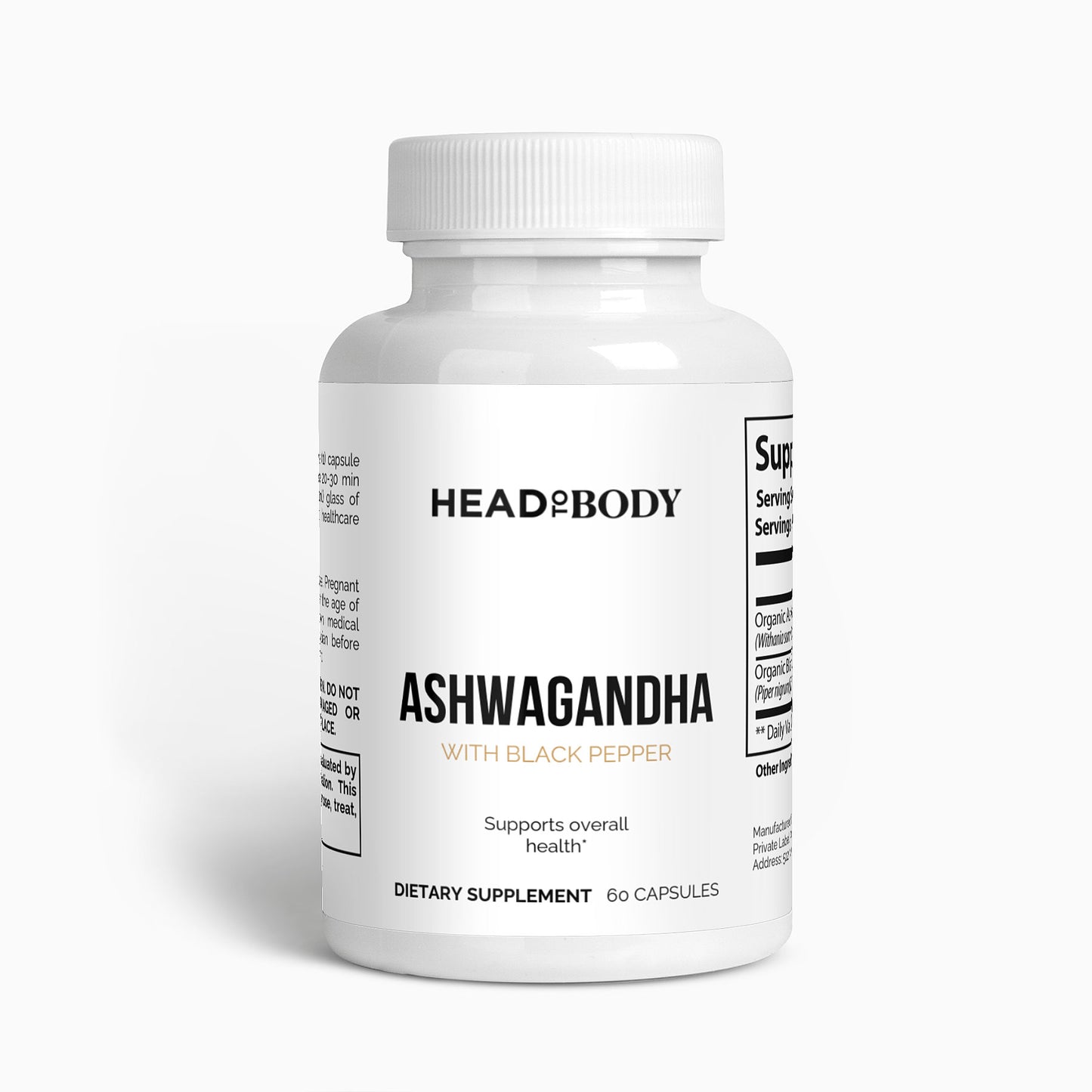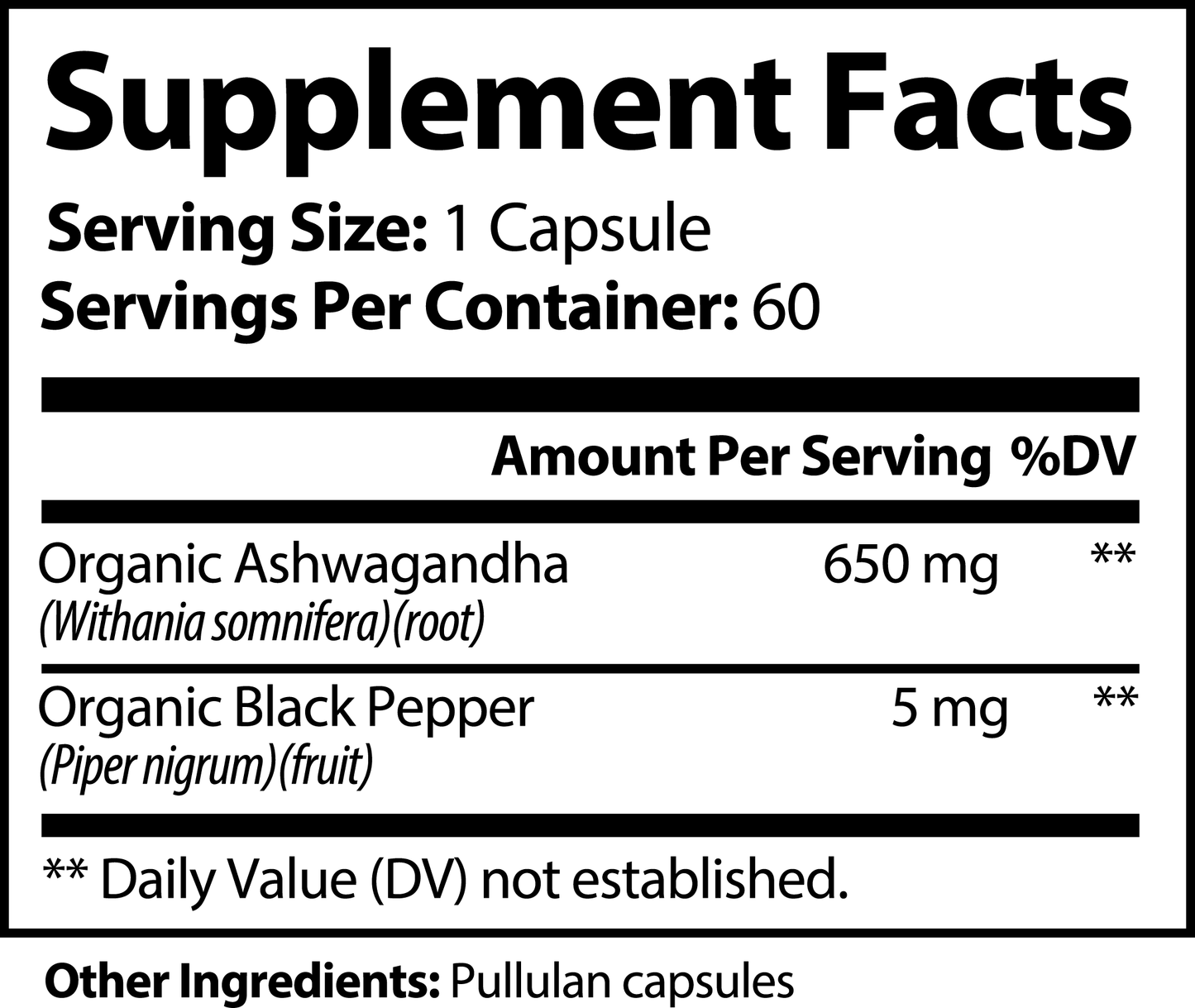Anxiety affects over 40 million adults in the U.S. alone—making it one of the most common mental health challenges today. The good news? There’s a powerful herb that’s been quietly helping people manage stress and anxiety for centuries: ashwagandha. You’ve probably heard the name, but how does it really work, and can it actually help ease anxiety?

If you've been searching for a natural solution to bring more calm into your life, you're in the right place. Ashwagandha, often called the “king of Ayurvedic herbs,” has been shown to reduce cortisol levels, support brain function, and promote relaxation without drowsiness. That’s right—less stress, more clarity, and no sluggish aftermath. In this article, we’ll dig deep into the science of how ashwagandha can help with anxiety, explore what makes it so effective, and give you practical tips on how to use it.
Ashwagandha has been gaining attention for its numerous health benefits, particularly its ability to reduce stress and anxiety. For centuries, this adaptogenic herb has been used in Ayurvedic medicine, but modern research has confirmed its powerful calming effects. In this article, we’ll explore whether ashwagandha can truly help with anxiety, how it works, and what you need to know before incorporating it into your routine.
Understanding Anxiety and Its Impact on Health
What Causes Anxiety?
Anxiety is a natural response to stress or danger, but when it becomes chronic, it can severely impact your quality of life. Causes of anxiety vary from genetic factors to environmental stressors, trauma, or even chemical imbalances in the brain. Anxiety disorders are often triggered by significant life changes or ongoing stress, such as financial problems, work-related pressures, or relationship issues. The body's "fight-or-flight" response, which is activated by the hormone cortisol, remains elevated in individuals with anxiety, even in non-threatening situations.
Chronic anxiety can also be fueled by neurotransmitter imbalances, particularly in serotonin, dopamine, and gamma-aminobutyric acid (GABA) levels. These chemical messengers help regulate mood, and when they're out of balance, it can lead to symptoms of anxiety. Lifestyle factors such as poor diet, lack of exercise, and substance abuse can further exacerbate anxiety.
Symptoms of Anxiety
Anxiety manifests in different ways, depending on the individual. Common symptoms include excessive worrying, restlessness, irritability, and difficulty concentrating. Physical symptoms, such as a racing heart, sweating, trembling, and fatigue, often accompany the mental strain. Over time, these symptoms can become overwhelming, leading to sleep disturbances, digestive issues, and a weakened immune system.
Left untreated, anxiety can contribute to long-term health issues, including cardiovascular problems, gastrointestinal disorders, and even chronic pain. It also affects mental health, potentially leading to depression or panic disorders. Recognizing the symptoms early and seeking treatment, whether through lifestyle changes or natural remedies like ashwagandha, is crucial for maintaining overall well-being.
Long-Term Effects of Chronic Anxiety on the Body
Chronic anxiety has a profound impact on the body over time. One of the most significant effects is the constant activation of the stress response system. Prolonged exposure to high cortisol levels, the body's primary stress hormone, can lead to a host of health problems. This includes increased blood pressure, higher risk of heart disease, and a weakened immune system, making the body more susceptible to infections and illnesses.
In addition to physical health problems, chronic anxiety can also take a toll on mental health. Long-term anxiety can lead to the development of anxiety disorders, depression, and other mood-related conditions. Sleep disorders, such as insomnia, are common in individuals who suffer from ongoing anxiety, further compounding the issue by affecting daily functioning and mood. Given the severity of anxiety’s impact on the body, finding effective ways to manage and alleviate it is essential.
What is Ashwagandha and How Does It Work?

Ashwagandha as an Adaptogen
Ashwagandha, a staple in Ayurvedic medicine, is classified as an adaptogen. Adaptogens are natural substances that help the body cope with stress by regulating the adrenal glands and balancing cortisol levels. These herbs work by bringing the body back to a state of equilibrium, whether you’re dealing with physical, mental, or emotional stress.
What makes ashwagandha particularly effective is its ability to modulate the body’s stress response. When you’re stressed, your body releases cortisol, the hormone responsible for the fight-or-flight response. While cortisol is useful in short bursts, chronic stress keeps cortisol levels elevated, which can lead to anxiety, sleep problems, and a weakened immune system. Ashwagandha helps to lower cortisol levels, effectively calming the body and reducing feelings of anxiety.
Key Compounds in Ashwagandha that Help with Anxiety
The active compounds in ashwagandha responsible for its calming effects are called withanolides. These compounds have been shown to have anti-inflammatory, anti-anxiety, and neuroprotective effects. Withanolides work by reducing the inflammation that can exacerbate anxiety and by improving the function of neurotransmitters, which are crucial for mood regulation.
Another important component of ashwagandha is its ability to boost GABA activity in the brain. GABA is a neurotransmitter that promotes relaxation and inhibits nerve activity in the brain, helping to reduce the overstimulation that leads to anxiety. By enhancing GABA signaling, ashwagandha can effectively calm the nervous system, making it easier to manage stress and anxiety.
The Role of Cortisol in Anxiety and How Ashwagandha Regulates It
Cortisol plays a major role in the body’s response to stress. While it’s necessary for survival in short-term stressful situations, prolonged exposure to elevated cortisol levels is detrimental. Chronic stress keeps cortisol levels high, leading to issues like insomnia, weight gain, and anxiety. This hormone also interferes with serotonin production, which is why people with high cortisol levels often experience mood swings and feelings of depression.
Ashwagandha’s ability to regulate cortisol levels is one of the main reasons it’s so effective for anxiety. Studies have shown that regular consumption of ashwagandha can significantly reduce cortisol levels, which in turn reduces symptoms of anxiety and stress. By bringing cortisol back into balance, ashwagandha helps the body move from a state of stress to one of calm, promoting overall well-being.
Scientific Studies on Ashwagandha for Anxiety

Clinical Research Supporting Ashwagandha's Role in Reducing Anxiety
Several clinical studies have demonstrated ashwagandha’s effectiveness in reducing anxiety. In one prominent study, participants with chronic stress who took ashwagandha supplements for 60 days experienced a significant reduction in cortisol levels, as well as improvements in anxiety symptoms. The study concluded that ashwagandha could be a viable natural treatment for managing stress and anxiety without the side effects typically associated with pharmaceutical medications.
Another study published in the Indian Journal of Psychological Medicine found that participants who took ashwagandha experienced a 44% reduction in anxiety compared to the placebo group. This marked improvement showcases the herb’s powerful anti-anxiety properties and supports its use as a natural remedy for anxiety disorders.
Comparative Studies with Traditional Anxiety Medications
When compared to traditional anti-anxiety medications, ashwagandha holds its own as an effective treatment. While medications like benzodiazepines or SSRIs work by altering brain chemistry, they often come with a range of side effects, including drowsiness, dependency, and withdrawal symptoms. Ashwagandha, on the other hand, works more naturally by helping the body regulate its stress response without disrupting normal brain function.
A study comparing ashwagandha to lorazepam (a common anti-anxiety medication) found that ashwagandha was just as effective at reducing anxiety without causing drowsiness or impairing cognitive function. This suggests that ashwagandha could be a safer alternative for individuals looking for natural anxiety relief without the risk of addiction or withdrawal.
How Quickly Does Ashwagandha Start to Work for Anxiety?
One of the most common questions regarding ashwagandha is how long it takes to start feeling its effects. While some users may notice a reduction in anxiety within a few days of taking ashwagandha, most studies suggest that the full benefits of the herb become apparent after two to four weeks of consistent use. This timeline allows ashwagandha to build up in the system and gradually regulate cortisol levels and neurotransmitter activity.
For people with chronic anxiety, taking ashwagandha consistently over the course of several weeks can lead to a noticeable reduction in symptoms. However, it’s important to remember that individual responses may vary, and some people may experience relief sooner than others.
How Ashwagandha Reduces Stress and Promotes Calmness

The Effect of Ashwagandha on the Nervous System
Ashwagandha’s ability to calm the nervous system is one of the primary reasons it’s effective for anxiety. The herb works by reducing overactivity in the nervous system, particularly in the sympathetic nervous system, which is responsible for the fight-or-flight response. By calming this response, ashwagandha allows the parasympathetic nervous system—the system responsible for rest and relaxation—to take over, promoting a state of calm.
In addition to its effects on the nervous system, ashwagandha helps regulate the hypothalamic-pituitary-adrenal (HPA) axis, the body’s central stress response system. By modulating the HPA axis, ashwagandha helps the body respond more effectively to stress, preventing the overwhelming anxiety that can result from chronic stressors.
Ashwagandha’s Role in Balancing Neurotransmitters
Neurotransmitters like serotonin, dopamine, and GABA play a crucial role in regulating mood and anxiety. When these neurotransmitters are out of balance, it can lead to feelings of anxiety, depression, and stress. Ashwagandha helps balance neurotransmitter levels by promoting GABA activity, which reduces nerve excitability and induces relaxation.
In addition to boosting GABA, ashwagandha also supports serotonin production, helping improve mood and emotional well-being. These effects make it a valuable tool for reducing anxiety and promoting calmness, particularly for people dealing with stress-induced mood disorders.
How Ashwagandha Lowers Stress Hormones like Cortisol
As mentioned earlier, cortisol is a key player in the stress response. Elevated cortisol levels lead to a heightened state of stress, contributing to feelings of anxiety and unease. By lowering cortisol levels, ashwagandha helps the body transition from a state of stress to one of relaxation.
Regular use of ashwagandha has been shown to significantly reduce cortisol levels, helping individuals manage stress more effectively. In addition to lowering cortisol, ashwagandha helps regulate other stress hormones like adrenaline, ensuring that the body’s stress response remains balanced and controlled.
In conclusion, ashwagandha is a powerful, natural remedy for anxiety. It helps regulate cortisol, balance neurotransmitters, and promote a calm, stress-free state without the side effects of traditional medications. While results may vary from person to person, ashwagandha provides a safe, effective option for managing anxiety and improving overall well-being.
HEADTOBODY: https://headtobody.com/









